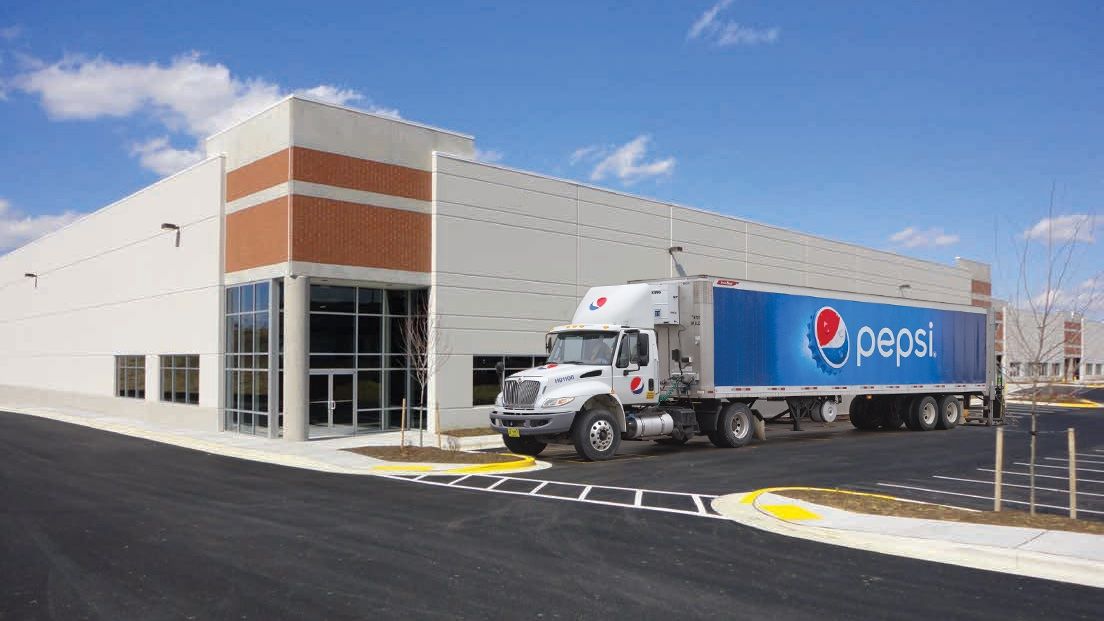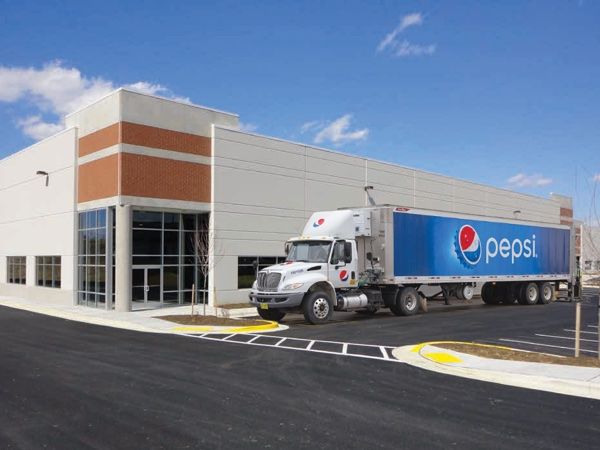We’ve acquired a new class-A distribution center with an in-place lease to PepsiCo (NASDAQ: PEP) in Capitol Heights, Maryland, for roughly $7.8 million. The property is located less than 30 minutes from downtown Washington, DC, directly inside the Capital Beltway.
As demand for more and faster delivery continues to grow, we believe that “last-mile” distribution facilities located close to major population centers will become increasingly important for retailers.
Business plan
Completed last year, the building was specifically designed for Frito-Lay (a division of PepsiCo) to utilize as a last-mile distribution facility serving its customers in the national capital region.
A last-mile distribution center, also referred to as a terminal building or sorting center, acts as a handoff point to connect 18-wheeler trucks, which typically carry goods in bulk across longer distances, with the smaller vehicles that make the final leg of the journey to drop off packages at individual homes and businesses.
While it’s critical that these types of facilities are located close to major population centers and easily accessible to the major highways, the availability of industrial zoned land that meets this criteria (generally speaking) is in increasingly short supply, which we believe will help drive long-term values.
The property was completed as a “build-to-suit” for PepsiCo, meaning that the location was selected by the company based on its attributes, and then the building itself was specifically designed in collaboration with the company to meet the exact specifications of its business needs. Although, unlike many e-commerce companies, Pepsi/Frito-Lay primarily delivers to small businesses, the company recently announced it was launching Snacks.com, a new direct-to-consumer business to offer customers “another way to purchase products they love” and have them “delivered directly to their door.”
PepsiCo is the sole tenant at the property and, as of our acquisition on June 1, had nine years remaining on their initial lease term with multiple options to extend. Our goal is to earn regular rental income from the property and then eventually to sell it for more than we spent on the acquisition.
How might COVID-19 impact this investment?
While the extent of the negative impacts of the pandemic on the broader economy remains uncertain, we believe this investment is exceptionally well-positioned to withstand a prolonged economic downturn.
Typically, commercial real estate investments such as this are analyzed based on the “credit” of the tenant, i.e. the likelihood that the tenant does or doesn’t pay their rent. With smaller companies or businesses, that likelihood may be dependent on the health of that single location. On the other hand, with a mature, publicly traded company such as PepsiCo — which guarantees payments under the lease — the entire company would have to default on its obligations in order for it not to be responsible for rent payments. PepsiCo has an “A” rating by Fitch Ratings as of March 2020 based upon “PepsiCo's significant scale, brand strength, geographic reach and product diversification, which is supported by its higher-margin Frito-Lay North America (FLNA) segment, combined with very good liquidity, provides considerable support and cash flow stability to its credit profile.”
Additionally, we own this property outright with no debt, so the risk of losing the property due to foreclosure (one of the primary ways that real estate investors risk losing principal during a financial crisis) is essentially non-existent.
Why we invested
- Fortune 500 credit tenant: PepsiCo’s exceptional “A” credit combined with the nine years remaining on the lease makes this investment attractive from a risk-adjusted return standpoint.
- Prime location: The property is located less than 30 minutes from downtown DC and adjacent to the Capital Beltway, which acts as a conduit for the entire metro area. From the site, delivery vehicles can reach most of the region within an hour’s drive.
- Strong, stable local economy: With over 30% of residents employed by the government, the DC market is uniquely insulated from national economic downturns. In addition to federal workers, demand is driven by private-sector employees that support the government, such as consultants, lobbyists, and lawyers. For more information, please see our DC market analysis.
As always, if you have any questions or feedback, please visit our help center or reach out to us at investments@fundrise.com.
————
A brief note about how we’re navigating the coronavirus (COVID-19) pandemic
Though black swan events like the current coronavirus pandemic are impossible to predict, nearly every decade has experienced some form of significant economic disruption. Recognizing this, we’ve spent the last several years structuring our investments to withstand a sudden and prolonged period of distress. Given today’s extreme uncertainty, we have begun taking decisive action aimed at further fortifying your portfolio.
In the immediate term, we expect to limit most new acquisitions and instead anticipate holding more cash in reserve. We plan to focus on pushing our existing projects forward and, in rare instances, look to deploy strategically into properties — like this one — that we feel are particularly well suited to withstand near term stress or even benefit from the current disruption in the market. As we continue to monitor the ongoing effects of this disruption, we expect that over time having additional cash reserves on hand may allow us to capitalize on new opportunities that begin to present themselves.

